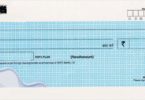Banking Quiz:
“Sans recourse” means __
(a) I am not afraid
(b) Do not touch me
(c) Ask the drawer
(d) Without liability to me
In banking ATM stands for
(a) Automated Tallying Machine
(b) Automatic Teller Machine
(c) Automated Totalling Machine
(d) Automated Transaction of Money
‘Commercial Papers’ are issued by
(a) a company to a bank
(b) Banks to Companies
(c) Banks to Banks
(d) Company to its suppliers
One of the following is not a function of Retail Banking
(a) Accepting fixed deposits
(b) Giving Home loans
(c) Giving Education Loans
(d) Joint ventures
The relationship between a banker and its customer is basically __
(a) A debtor and a creditor
(b) A trustee and the beneficiary
(c) A principal and agent
(d) None of these
Related: English Antonyms Practice Questions
Which of the following terms is not used in Banking World ?
(a) Holding Company
(b) Post dated cheque
(c) Time deposit
(d) Centripetal force
Which of the following is not a function of a commercial bank?
(a) Accepting deposits
(b) Issuing currency
(c) Advancing loans
(d) Credit creation
Expand the term SWIFT.
(a) Society for Worldwide International Financial Telecommunications
(b) Society for Worldwide Interbank Financial Telecommunications
(c) Society for Worldwide International Financial Transfers
(d) Society for Worldwide Interbank Fiscal Transactions
Relationship of Banker with Payee of Draft
(a) Trustee and Beneficiary
(b) Drawer and Drawee
(c) Licensor and Licensee
(d) Principal and Agent
Related: examples of Prefixes and suffixes
Open market operation influences
(a) The reserves of commercial banks
(b) The market rate of interest
(c) Both A and B
(d) None of the above
A document issued by the bank to acknowledge the receipt of a fixed sum of money deposited __ is called
(a) Collection receipt
(b) Pay in slip
(c) Fixed deposit receipt
(d) Bond
What is meant by “Underwriting” the term frequently used In financial sector ?
(a) Under valuation of the assets
(b) The Act of taking on a risk for a fee
(c) Giving a Guarantee that a loan will not become a bad loan
(d) The act of permission to float
The credit policy of a bank does not deal-with :
(a) Credit risk management
(b) Documentation standards
(c) Review and renewal of advances
(d) Outstanding balances in deposit accounts
Related: Awards and Honours quiz
Which of the following is NOT a banking related term ?
(a) Discount
(b) Credit
(c) Reynolds Number
(d) Post Dated Cheque
The banker advances money against immovable property only when the property is __ to the banker
(a) Mortgaged
(b) Pledged
(c) Hypothecated
(d) None of these
The activity of purchasing shares of various companies is called ___
(a) On-line Trading
(b) Share Trading
(c) Real estate investment
(d) Corporate Trading
Which of the following terms is used in the field of finance and banking?
(a) Metabolism
(b) Genetic process
(c) Experimental Error
(d) Debt instrument
Which of the following is correct statement ?
(a) Normally no interest is paid on current deposit accounts.
(b) Interest is paid on current accounts at the same rate as term deposit accounts.
(c) The rate of interest on current account and savings account are the same.
(d) No interest is paid on any deposit by the bank.
Related: List of all currencies in the world
Banks make frequent changes in their product profile including introduction of new products etc. This is called
(a) Product Control
(b) Product enhancement
(c) Product marketing
(d) Product enrichment
Credit rationing is a __ method of credit control
(a) Quantitative
(b) Qualitative
(c) Direct
(d) Continues credit control
Which of the following terms is in Banking Field?
(a) Interest Rate Swap
(b) Input Devices
(c) Sedimentary
(d) Zero Hour
Sub Prime Lending* Is a term applied to the loans made to —
(a) those borrowers who do not have a good credit history
(b) those who wish to take loan against the mortgage of tangible assets.
(c) those who have a good credit history and are known to bank since 10 years.
(d) those borrowers who are most preferred customers of the Bank.
__ constitute the largest source of funds for the bank
(a) Cash
(b) Loan
(c) Deposit
(d) Commission
Related: RTO test
__ is continues arrangement between a Commercial Bank and a business concern for the purchase of book debt of the business concern.
(a) Leasing
(b) Venture capital finance
(c) Factoring
(d) Credit rating
Internet is the cheapest of all banking channel and helps banks to gain substantially in terms of __ Cost
(a) Auditing
(b) Deposit
(c) Investment
(d) Transaction
Which of the following is NOT a banking/finance related term ?
(a) Credit wrap
(b) EMI
(c) Held to Maturity
(d) Diffusion
Through which one of the following sources domestic funds are raised by Companies ?
(A) IPO only
(B) FPO only
(C) Commercial papers
(a) Only (C)
(b) All (A), (B) & (C)
(c) Only (A) & (C)
(d) Only (A)
One single statement that depicts the financial position of a bank and/or business enterprise at a given point of time is called ___
(a) Statement of product details
(b) Reconciliation Statement
(c) Balance Sheet
(d) Quarterly returns submitted to RBI
Related: Fundamental knowledge of computer
Mortgage is a :
(a) security on movable property for a loan given by a bank.
(b) security on immovable property for a loan given by a bank.
(c) concession on immovable property for a loan given by a bank.
(d) facility on immovable property for a loan given by a bank.
The term bank is derived from the German word ‘Banc’ which means __
(a) Security
(b) Safety
(c) Money
(d) Joint stock fund
Fixed deposits and recurring deposits are
(a) repayable after an agreed period
(b) repayable on demand
(c) not repayable
(d) repayable after death of depositors
Which of the following terms is not used in Banking World ?
(a) Credit
(b) Rate
(c) Financial Status
(d) Absolute zero
Which of the following is not an asset of a bank?
(a) Notes and small coins
(b) Overdue recurring deposits
(c) Short term loans
(d) Staff advances
Related: England’s King & Qeens quiz
Question: Banking Sector will fall under which of the following sectors?
(a) Agriculture Sector
(b) Service Sector
(c) Manufacturing
(d) Industrial Sector
What is the full form of IRR as used in banking/financial sectors ?
(a) Internal Rate of Return
(b) Internal Revaluation Reserve
(c) Investment Reserve Ratio
(d) Internal Risk Return
Which of the following is NOT a banking or finance related term ?
(a) Letter of Credit
(b) Back up Guarantee
(c) LIBOR
(d) Polymerisation
Banks need liquidity to meet which of the following objectives of banking ?
(1) Meet deposit and withdrawal
(2) Fund loan demands
(3) Maintain public confidence
(a) Only 1
(b) Only 2
(c) Only 1 and 2
(d) Only 2 and 3
Question: Mortgage is a :
(a) security on movable property for a loan given by a bank.
(b) security on immovable property for a loan given by a bank.
(c) concession on immovable property for a loan given by a bank.
(d) facility on immoveable property for a loan given by a bank.
Related: Science tool pictures
Question: Fixed deposits and recurring deposits are
(a) repayable after an agreed period.
(b) repayable on demand.
(c) not repayable.
(d) repayable after death of depositors.
How Do Banks Create Money?
If you’re new to the idea of a bank, you might be wondering how the system works. Banks are the primary money creators in an economy, and the creation of new money is a cooperative effort between commercial banks and the central bank. In a nutshell, banks create money in the form of deposits.
Banks create money by creating credit. They create credit by purchasing a loan contract from a customer. Then, they increase their assets by the amount of the loan. After this, they credit the borrower’s account with the money they created. The process of credit creation results in a lengthened balance sheet for both the bank and the borrower. Credit creation is responsible for creating 97% of the money supply in the countries like United States and United Kingdom, and similar proportions apply in most industrialised countries.
Banks create money by combining deposit-taking and loan-granting activities. Because banks are exempt from the “Client Money Rules,” they can create new money by issuing loans to customers. Unlike other firms, banks are the only ones that can create new money this way. This process is the source of the official’money supply’. This monetary unit is announced by the central bank, but not by other actors.






